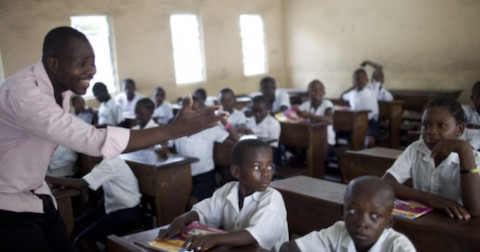
GCED Basic Search Form
Quick Search
أنت هنا
Events

As part of its responsibility to coordinate the Teacher Cluster Program of the Continental Education Strategy for Africa (CESA 16-25) of the African Union Commission, UNESCO’s International Institute for Capacity Building in Africa (IICBA) is joining hands with the Association for the Development of Education in Africa (ADEA) in order to intensify their work on the development of evidence-informed research to policy makers that is contextuallyrelevant and adapted to Africa. Accordingly, IICBA and ADEA are co-organizing a webinar to discuss the state of teacher motivation in Africa and the ways in which it can be improved, so as to positively influence learning outcomes.
The objectives are to:
- improve participants’ knowledge and understanding of the issues of teacher motivation in Africa;
- disseminate the various useful resources and tools on teacher motivation and support; and
- share practical experiences that are adapted for the continent that have also been tested to improve teacher motivation in some countries.
The webinar is expected to be attended by experts in teacher education, development and management within the Education Ministries in Africa, UNESCO National Commissions, and critical partners including UNESCO and ADEA Staff and representatives from UNICEF, EI, AFTRA, etc.)
Due to global movements such as the Millennium Development Goals (MDGs) and the Education For All (EFA), access to education in Sub Saharan Africa has improved significantly during the first two decades of the 21st century. This ambitious initiative to improve access to education in less than two decades required the recruitment and employment of teachers on a massive scale. As a result, there has been a deterioration in the quality of teacher training across Africa and the recruitment of ‘less-qualified’ teachers. The rapid and ambitious move to expand education has contributed to the unintended consequence of lowering “the status and motivation of teachers,” with some even discussing of a looming “teacher motivation crisis” across Africa (Crehan, 2016).
Studies show that teacher motivation is directly associated to student’s learning outcome and achievement, thereby quality of education (Dolton and Marcenaro, 2011). Quality education plays a key role in combating poverty and ensuring sustainable development. As the world shifts its attention to quality of education under the auspicious of 2030 Sustainable Development Goal 4 (SDG4), the issue of teacher motivation requires urgent action by governments, donors, academics and practitioners. As Mckinsey (2007) rightly argues the quality of an education system cannot exceed the quality of its teachers. Motivated teachers are the ‘vanguards’ of quality education; this is underscored in The Education 2030 Agenda of Sustainable Development Goals: “We will ensure that teachers and educators are empowered, adequately recruited, well-trained, professionally qualified, motivated and supported within wellresourced, efficient and effectively governed systems.”
At policy level, the growing attention that is being given to teacher motivation is unsurprising given the high levels of teacher absenteeism and attrition across Africa, low professional commitment to teaching duties and the massive teacher shortages accompanying the drive to meet SDG 4. The need to properly remunerate teachers, increase ‘quality’ time on task and keep teachers in the profession have been pressing policy questions and constant refrains of education conferences, development agencies, commissioned studies and other reviews (Bennell and Akyeampong, 2007). Until recently, however, education decision makers and international development partners have skimmed over, and/or not treated in a holistic way, the issues that trigger low teacher morale and declining motivation. Nor have they fully investigated the linkages between low teacher motivation and education quality. As a result, potential remedies and support frameworks for addressing the teacher motivation crisis have been absent from national education plans.
As part of its responsibility to coordinate the Teacher Cluster Program of the Continental Education Strategy for Africa (CESA 16-25) of the African Union Commission, UNESCO’s International Institute for Capacity Building in Africa (IICBA) is joining hands with the Association for the Development of Education in Africa (ADEA) in order to intensify their work on the development of evidence-informed research to policy makers that is contextually relevant and adapted to Africa. Accordingly, IICBA and ADEA are co-organizing this webinar to discuss the state of teacher motivation in Africa and the ways in which it can be improved, so as to positively influence learning outcomes.
Related Content
Useful Links
URL:
